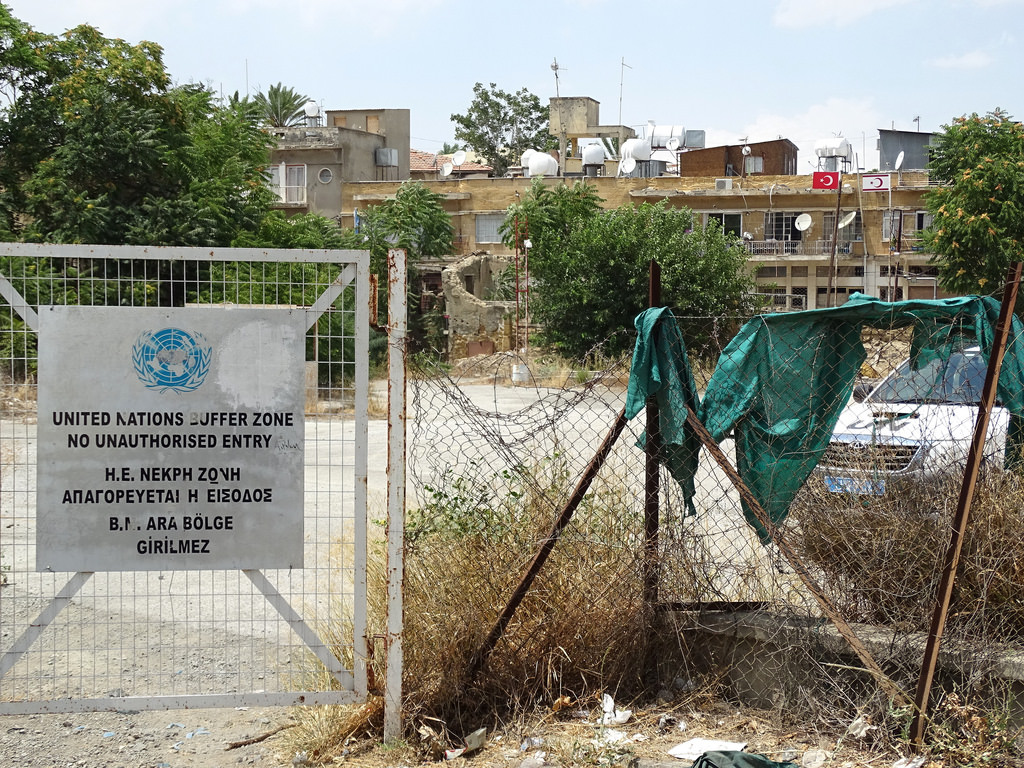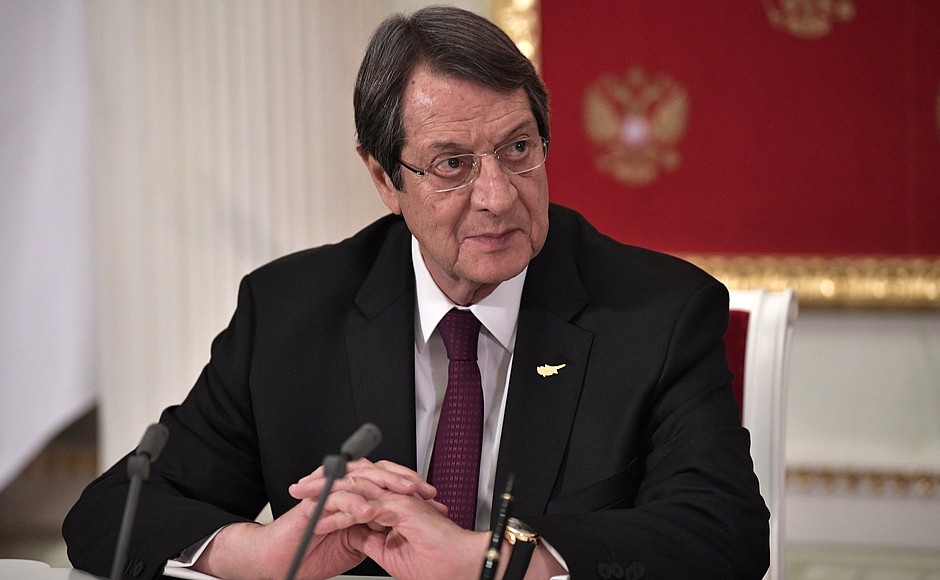The island of Cyprus has interlinked trade and wars between continents throughout time. Its Mediterranean location leads the island to be seen as a part of the Middle East, but also a part of Europe—perhaps it is both.
However, recently it has been divided into two with the Northern Turkish Cypriots holding two thirds of the Northern part under a Turkish military occupation—a country declared to exist only by Turkey—and the Southern part under the control of the Republic of Cyprus governed by the Greek Cypriots—making the Southern part of the island a member of the European Union since 2004.
Since the division of the island in 1974, there have been several attempts to negotiate peace between the parties. With the UN-led negotiations, significant improvement has been made in recent years. The latest negotiations ended in summer 2017, where the UN Secretary General, António Guterres stated that he was deeply sorry about the outcome of the two year negotiations: “I wish the next generation good luck on this and that one day maybe Turkish Cypriots and Greek Cypriots will decide together that there is no longer a need for troops on the island.” He is referring to the Turkish Cypriot troops on the ground that became one of the biggest unresolved issues during the negotiations.

Hope in Time for the Island of Cyprus
As borders change and nationalities collide, people are left with the feeling of hostility and a division between “us and them”. The origins of this are born from the tendency of people to identify themselves through their position towards others. Individuals belong to groups with different kinds of identities. Benedict Anderson, who claims that a nation is an imagined political community, once said: ‘It is imagined because the members of even the smallest nation will never know most of their fellow-members, meet them, or even hear of them, yet in the minds of each lives the image of their communion.’ Thus, the collective sense of nationality and the feeling of “us” are essential when forming and governing a stable country. However, this nationality develops constantly over time. And as time heals all wounds, people can start to distance themselves from the conflict and identify the common goals.
The Future Generations
People born in Cyprus post-1974 have never experienced life on a unified island. Still many of them dream of unification. Seeing the conversation of two young representatives of the Greek Cypriots and Turkish Cypriots, shows the need of unification more clearly. Young Cypriots in the video describe the Cyprus problem as ‘walking on a dark road, where you can not see the end of the road.’ These are the feelings and needs of people who did not even experience the division themselves. The division places its limits on all areas of life.

Elections for the Return of Hope
In January 2018 presidential elections were held in the Republic of Cyprus, whilst parliamentary elections took place in Northern Cyprus. Whether the new leaders and a new parliament will be able to find a new window of opportunities to move toward unification, will be left for us to find out sooner than we think.
The current President Nicos Anastasiades, of the Republic of Cyprus, won only by a small majority in the second round. During the elections it became clear how Greek Cypriots want the next President to prioritise the issue of division on the agenda. In fact, most of the campaigns during the elections were focused on the issue. President Anastasiades ran his campaign with the goal of ‘re-energising the stalled peace process.’
In Turkish Cypriot parliamentary elections, none of the parties could form a majority parliament, so the new formation will be a coalition parliament. The election was a consequence of dissatisfaction toward the current parliament on many levels, and so the focus of the elections was not on the Cyprus problem. Still, as the public is not content with the dealings of the previous parliament, there might be an appropriate opportunity for unification.
The future will show what happens, probably we will see things moving forward already during 2018. With time, trust and respect shown by both parties, a common ground in all aspects can be found.
By Jenni Hilska
Photo 1: The Kremlin, Press statements following Russia-Cyprus talks. President of Cyprus Nicos Anastasiades. Creative Commons Attribution 4.0 International
Picture 2: Adam Jones, Along the Green Line – Nicosia – Cyprus – 03, CC BY-SA 2.0










